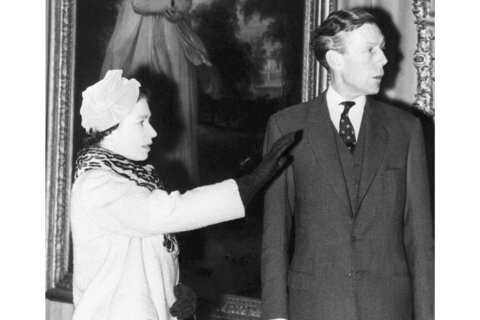Getting into medical school is no easy feat.
In a review of admissions data from 2021-2022, U.S. News found that the average acceptance rate for 129 U.S. medical schools was just 5.5%.
And fewer than half of all applicants nationwide gain acceptance — according to the American Association of Medical Colleges, 55,188 students applied for admission to M.D. programs during the 2022-2023 admissions cycle, and just under 24,000 were accepted, for an overall acceptance rate of 43.1%.
How Hard Is it to Get Accepted Into a Top Medical School?
For prospective medical students aiming for some of the nation’s most prestigious medical schools, the acceptance rate dwindles even lower. For the 2021-2022 school year, the Stanford University School of Medicine in California accepted just 1.4% of applicants, while the Harvard University Medical School in Massachusetts accepted only 2.8%, according to U.S. News data.
Good grades and a top-percentile MCAT score are important, but experts say you’ll need more than that to get into a top-ranking medical school. In addition to these numerical measures of academic success, it’s important to have a compelling narrative that comes up in your recommendation letters, personal statements and extracurricular activities to highlight your passion and drive to pursue a career in medicine.
Here are some factors that experts say you’ll want to pay close attention to when you’re preparing to apply for a top-ranked medical school.
Recommendation Letters
If you’ve got a good grade in a really difficult class, you may be tempted to ask the professor of that class for a letter of recommendation — but not so fast. Take a moment to consider just how well you know that professor, as a generic recommendation from someone who knows little about you outside of the classroom is not likely your best bet.
[Read: Examples of College Recommendation Letters That Impressed Schools.]
“You want to ask someone who knows you deeply — you don’t just want to say, ‘Hey, I got an A+ in your class, can you write me a letter?'” says Dr. Kevin Jubbal, founder of Med School Insiders, a medical school admissions consulting and tutoring agency. “Because what they’re gonna write is, ‘Hey, this person got an A+ in my class.’ That’s cool, but it doesn’t really say much.”
Jubbal says it’s important to find people who genuinely know you — professors you’ve bonded with closely, former supervisors in jobs or internships you’ve held, etc. He also recommends providing your references with background information about qualities and experiences you’d like them to highlight in their recommendation letter so that they can really personalize it.
Georgina Sellyn, a student at the Vanderbilt University Medical College in Tennessee, says she believes her recommendation letters were a strong aspect of her application to medical school. She formed strong relationships with mentors through shadowing and working in a research lab that really allowed her recommendation letters to stand out.
“I feel like the most important thing is finding a mentor who’s really invested in you — and having a longitudinal relationship with them — so they can really get to know you well and vouch for you in a way that’s genuine,” she says.
Extracurricular Activities
While success in the classroom is critical to getting into a top medical school, it’s also important to pursue other passions outside of the classroom.
Many applicants feel they need to have a “checklist” of extracurricular activities — working in a research lab, shadowing at a hospital, volunteering, etc.. But experts say it’s about the depth of involvement, not necessarily the quantity of activities.
[Related:Why It’s Hard to Get Into Medical School Despite Doctor Shortages]
Rather than selecting a handful of extracurriculars that you think admissions officers will want to see, Jubbal says it’s important to follow your passions and get deeply involved in activities that you truly enjoy.
“Institutions are really looking for people who have had meaningful experiences that they can articulate in writing or in an interview to tie their whole story together,” says Dr. LeAnna Muzquiz, associate dean for admissions at the University of Washington School of Medicine. “Be very careful not to approach it from a checklist standpoint.”
And while extracurricular activities that tie into the medical field like volunteering at a hospital or working as a research assistant are impressive, other types of activities can be equally so.
Sellyn, for example, played on her university’s tennis team and taught tennis lessons in the years before she applied for medical school. She says her experience as a tennis player and teacher helped her develop strong communication and teamwork skills that will serve her well as a doctor.
Passion for Medicine
Applicants should have a strong interest in medicine and be able to express this passion in each aspect of the application process, from the personal statement to the resume to the final interview.
Jubbal says prospective medical students should seek out volunteering and shadowing opportunities early on to gain a sense of what it means to actually practice medicine.
[READ: Why No School Is a Safety in Medical School Admissions]
Although you can’t know exactly what the job will be like until you’ve begun practicing, Jubbal says these experiences will give you a better sense of whether medicine is the right fit for you. Muzquiz agrees, noting that it’s important to make sure you’re studying medicine for the right reasons and have realistic expectations about what it means to be a doctor beyond pop culture portrayals.
Muzquiz says it’s also important to apply to schools whose mission aligns with your goals and interests. Consider the reasons you want to study medicine and what you want to do with it. If you’re mainly interested in medical research, for example, schools that emphasize research will be a better fit for you.
“Institutions, for the most part, are very mission-driven. We strive to find folks who are going to meet the mission of our institution,” she says. “My advice to prospective applicants is think about how whatever activities you participated in or experiences you’ve gained align with your own personal mission, and then explore institutional missions to see if those align.”
More from U.S. News
How to Choose Which Medical School to Attend
15 Most Expensive Private Medical Schools
The Medical School Admissions Cycle: A Month-by-Month Guide
How to Get Into Top Medical Schools originally appeared on usnews.com









